
How Much Can AI Agents Cut Healthcare Operational Costs?

Published on: July 18, 2024 Iot
The automotive industry is undergoing a significant transformation with the integration of IoT technologies. Connected cars and smart transportation systems are becoming the norm, enhancing safety, efficiency, and convenience. In this blog, we explore how various IoT technologies and platforms are shaping the future of the automotive sector.
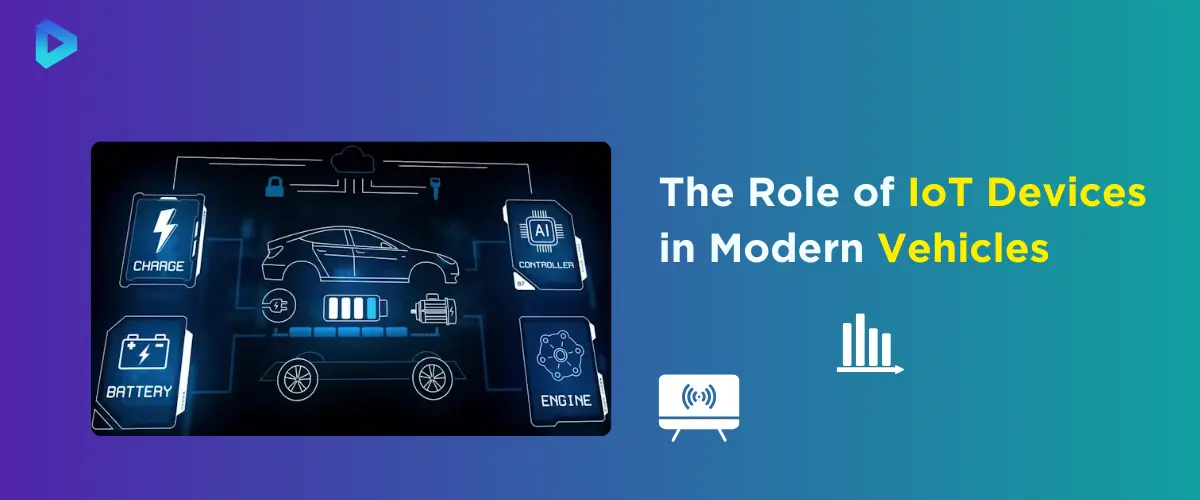
IoT devices are pivotal in modern automobiles, significantly enhancing their functionality and safety features. These devices facilitate seamless communication between vehicles and infrastructure, leading to improved traffic management and reduced accident rates. Sensors gather real-time data on how vehicles perform and how drivers behave. This information is crucial for predictive maintenance and enhancing the overall driving experience. IoT devices monitor crucial parameters like tire pressure, engine health, and fuel levels. These sensors issue prompt alerts for required maintenance.
Integrating IoT into vehicles drastically enhances their functionality, offering a range of advanced features. Smart cars can now include autonomous driving capabilities, real-time navigation, and personalized infotainment systems. IoT integration allows vehicles to interact with smart city infrastructure. This optimizes routes based on current traffic conditions to reduce travel time. IoT-powered navigation systems offer real-time traffic updates and recommend alternative routes to bypass congestion. IoT facilitates advanced driver-assistance systems (ADAS), including features such as adaptive cruise control, lane-keeping assistance, and automated parking.
IoT-powered automotive systems incorporate various features that significantly boost safety and convenience for both drivers and manufacturers. These features include:
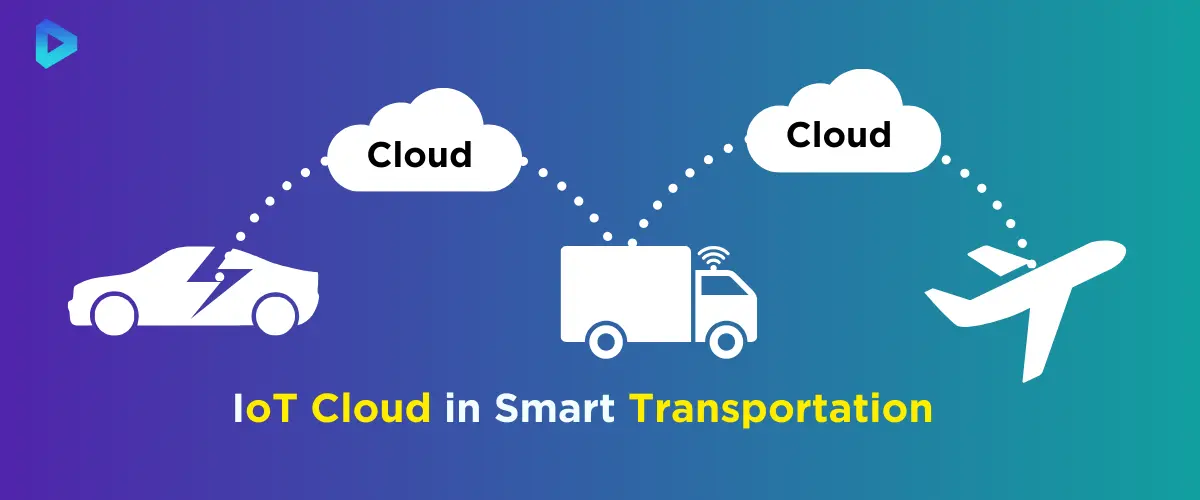
The IoT Cloud significantly enhances vehicle connectivity by enabling seamless communication between vehicles and other connected devices. Vehicles can share real-time information with each other and with infrastructure systems through IoT Cloud platforms. This improves traffic flow and safety. Connected cars can communicate traffic conditions, road hazards, and optimal routes to each other. This information assists drivers in making informed choices and steering clear of traffic jams. IoT Cloud services allow for over-the-air updates. This ensures that vehicle software remains up-to-date with the latest features and security patches.
Real-time data processing is a critical capability of IoT Cloud solutions. It enables vehicles to react promptly to changing conditions. The IoT Cloud processes vast amounts of data generated by sensors and devices in connected cars instantly. This immediate analysis of data allows for timely actions, such as adjusting vehicle speed to avoid collisions, optimizing fuel usage, and enhancing navigation accuracy. When a connected vehicle detects a sudden slowdown in traffic, the IoT Cloud processes this data. It then sends alerts to nearby vehicles, helping to prevent accidents. Real-time processing supports advanced driver-assistance systems (ADAS). It provides the necessary data for features like lane-keeping and adaptive cruise control.
Implementing IoT Cloud solutions offers significant cost benefits for the automotive industry. A major benefit is the decrease in infrastructure expenses. IoT Cloud services eliminate the need for extensive on-premises hardware and maintenance. Additionally, IoT Cloud solutions enable predictive maintenance, which helps identify potential vehicle issues before they become costly problems. By addressing maintenance needs proactively, companies can reduce downtime and extend the lifespan of their vehicles. IoT Cloud services allow businesses to pay only for the resources they use. This approach makes it a cost-effective solution for both small startups and large organizations.
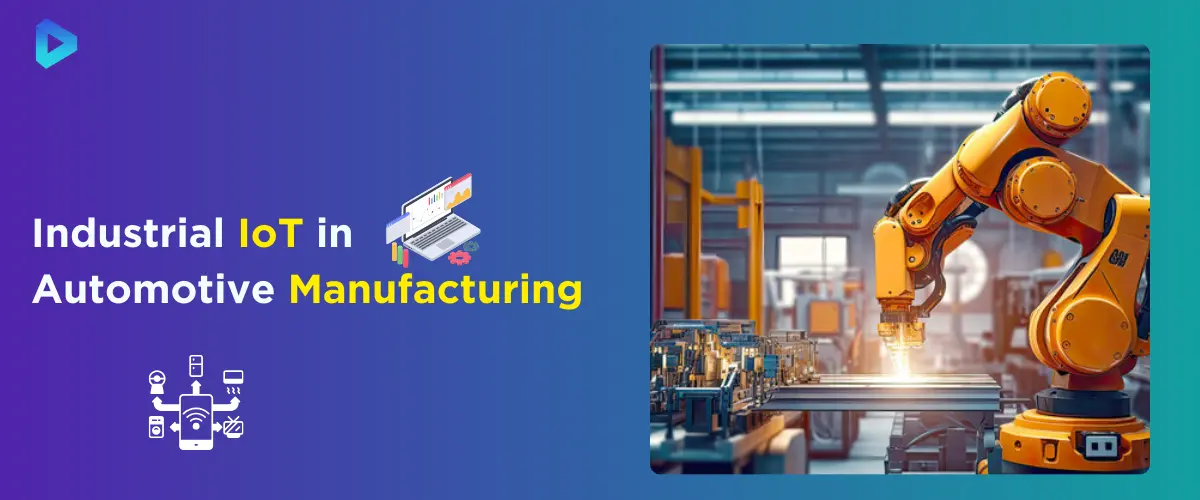
Industrial IoT (IIoT) has changed vehicle manufacturing by integrating advanced sensors, data analytics, and automation technologies. These applications enable real-time monitoring and control of manufacturing processes, ensuring higher precision and quality. For example, IoT sensors can monitor equipment performance and detect anomalies, allowing for immediate adjustments to maintain optimal production conditions. Additionally, IIoT enables better inventory management through automated tracking of parts and materials, reducing waste and ensuring that production lines run smoothly. The integration of IIoT in vehicle manufacturing also facilitates seamless communication between machines and systems, improving coordination and efficiency across the production floor.
Implementing Industrial IoT solutions significantly improves production efficiency in the automotive sector. By providing real-time data on production processes, IIoT helps identify bottlenecks and areas for improvement. For instance, IoT-enabled machinery can automatically adjust settings to optimize performance and minimize energy consumption. This leads to reduced downtime and increased throughput. IIoT monitors the usage of raw materials and energy, ensuring efficient resource management. The insights gained from IIoT data analytics enable manufacturers to streamline operations, reduce costs, and enhance overall productivity.
Predictive maintenance is a key benefit of Industrial IoT in the automotive industry. IoT sensors monitor the condition of machinery and equipment, allowing manufacturers to predict maintenance needs, which helps prevent unexpected breakdowns and costly repairs. Vibration sensors on motors can detect early signs of wear and tear. They prompt timely maintenance before a failure occurs. This proactive approach extends the lifespan of equipment and reduces downtime, leading to significant cost savings. Additionally, predictive maintenance helps ensure consistent product quality by maintaining optimal operating conditions for machinery.
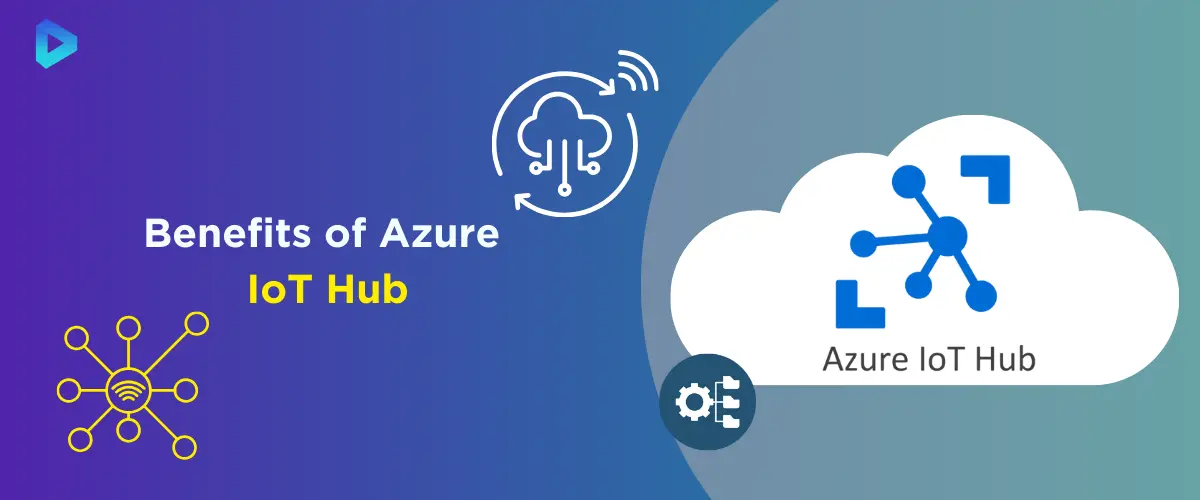
Integrating Azure IoT Hub with automotive systems offers numerous benefits, enabling seamless communication and data exchange between connected vehicles and cloud services. This integration facilitates real-time monitoring and control of vehicle functions, enhancing both performance and safety. Manufacturers can use Azure IoT Hub to gather and analyze data from sensors embedded in vehicles. The system provides insights into engine health, fuel efficiency, and driver behavior. The integration supports over-the-air (OTA) updates. Vehicle software remains current with the latest features and security patches.
Azure IoT Hub offers a range of features that are particularly beneficial for smart cars. These features include:
Azure IoT Hub's ability to grow is a significant advantage. It is crucial for automotive manufacturers and service providers. Azure IoT Hub can efficiently manage and process data from millions of connected vehicles. This ensures consistent performance regardless of the scale of deployment. This ability to grow allows automotive companies to expand their IoT solutions as their fleet grows. It ensures there is no compromise on performance or reliability. Additionally, Azure IoT Hub's scalable architecture supports diverse use cases, from small pilot projects to large-scale commercial deployments.
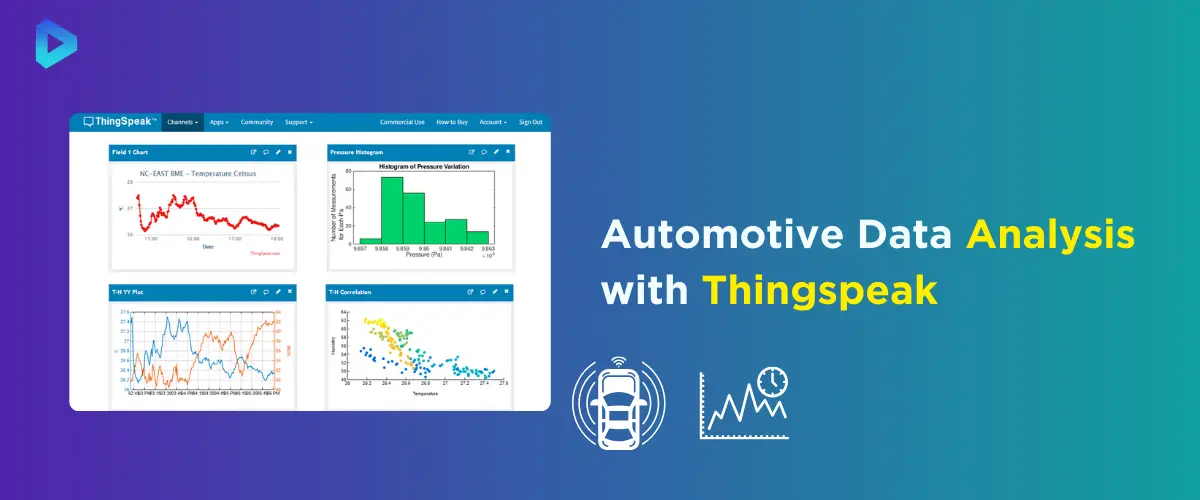
Thingspeak is a powerful tool for vehicle diagnostics, offering real-time data analysis and insights. By leveraging Thingspeak, automotive companies can monitor engine performance, fuel efficiency, and other critical parameters. This data helps in identifying potential issues before they become serious problems, enabling proactive maintenance. For instance, Thingspeak can track temperature variations in engine components, alerting technicians to possible overheating issues. This application of Thingspeak in vehicle diagnostics not only improves vehicle reliability but also enhances the safety and satisfaction of the driver.
Real-time monitoring is one of the standout features of Thingspeak for cars. Thingspeak collects and processes data from various sensors in real-time. This provides instant insights into vehicle performance and health. This capability allows for immediate response to any problems or malfunctions, reducing the risk of breakdowns. If a vehicle's tire pressure drops below a safe level, Thingspeak can instantly alert the driver. It can also suggest nearby service stations.
The data visualization capabilities of Thingspeak are essential for making sense of complex automotive data. With its powerful visualization tools, Thingspeak can transform raw data into easily understandable graphs and charts. This helps automotive engineers and technicians quickly identify trends and patterns, helping better decision-making. For instance, Thingspeak can display a heat map of engine performance, highlighting areas that require attention. Teams can share these displays across departments, improving collaboration and efficiency in addressing vehicle issues.
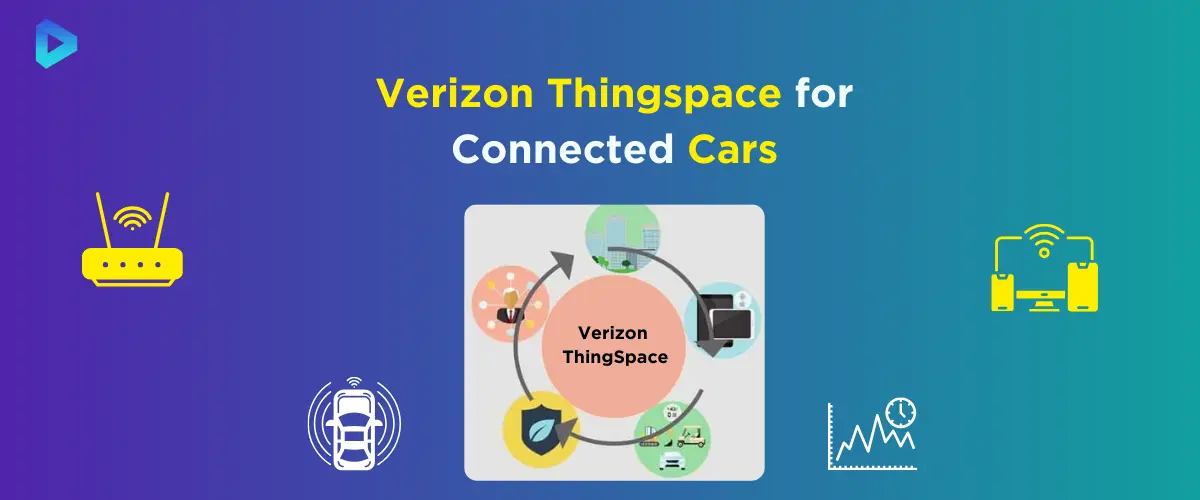
Connecting Vehicles with Verizon Thingspace
Verizon Thingspace provides robust solutions for connecting vehicles, helping seamless communication between cars, infrastructure, and cloud services. By leveraging Verizon's reliable network, automotive companies can ensure that their vehicles remain connected, regardless of location. Connectivity allows for real-time data exchange. It enables features such as remote diagnostics, over-the-air updates, and enhanced navigation services. A connected car can receive software updates and new features without needing a visit to the dealership. The vehicle always has the latest capabilities.
Verizon Thingspace offers a variety of features tailored specifically for the automotive industry. Key features include:
Verizon Thingspace significantly enhances vehicle connectivity by providing a robust and scalable platform for IoT applications. The platform enables vehicles to communicate seamlessly with each other and with external systems. It helps with traffic management, emergency response, and fleet management. Enhanced connectivity also allows for better integration with smart city infrastructure, improving overall transportation efficiency. Connected cars can share real-time traffic data with city planners. This sharing helps to reduce congestion and improve road safety.

How Much Can AI Agents Cut Healthcare Operational Costs?

How to Improve Enterprise Efficiency with SaaS ERP Solutions?

Why Operational CRM is Essential for Customer Satisfaction?

Why Mobile Web App are Essential for Your Supply Chain Business?